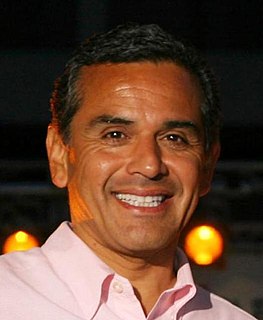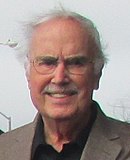
Elections in California are held to fill various local, state and federal seats. In California, regular elections are held every even year ; however, some seats have terms of office that are longer than two years, so not every seat is on the ballot in every election. Special elections may be held to fill vacancies at other points in time. Recall elections can also be held. Additionally, statewide initiatives, legislative referrals and referenda may be on the ballot.

California's state elections were held November 2, 2004. Necessary primary elections were held on March 2. Up for election were all the seats of the State Assembly, 20 seats of the State Senate, and sixteen ballot measures.

The 2004 California State Assembly elections were held November 2, 2004. California's State Assembly in its entirety comes up for election in even numbered years. Each seat has a two-year term and members are limited to three 2-year terms. All 80 biennially elected seats in the Assembly were up for election this year. It was expected that the Democrats would retain control of the Assembly, which they did. While some seats were close races, no opposing party challenges to incumbents were successful on either side and thus, there were no changes to the party balance.

California's state elections were held November 5, 2002. Necessary primary elections were held on March 5. Up for election were all the seats of the California State Assembly, 20 seats of the California Senate, seven constitutional officers, all the seats of the California Board of Equalization, as well as votes on retention of two Supreme Court justices and various appeals court judges. Seven ballot measures were also up for approval. Municipal offices were also included in the election.

The 2002 California State Senate elections were held on November 5, 2002. Senate seats of even-numbered districts were up for election. Senate terms are staggered so that half the membership is elected every two years. Senators serve four-year terms and are limited to two terms. As was expected, the Democratic Party held on to the majority of the seats, though they lost one.

The 2002 California State Assembly elections were held November 5, 2002. California's State Assembly in its entirety comes up for election in even numbered years. Each seat has a two-year term and members are limited to three 2-year terms. All 80 biennially elected seats in the Assembly were up for election this year. Democrats retained control of the Assembly, though they lost two seats.

California's state elections were held November 7, 2000. Necessary primary elections were held on March 7. Up for election were all the seats of the State Assembly, 20 seats of the State Senate, and eight ballot measures.

The 2000 California State Senate elections were held on November 7, 2000. Senate seats of odd-numbered districts were up for election. Senate terms are staggered so that half the membership is elected every two years. Senators serve four-year terms and are limited to two terms. The Democratic Party held on to the majority of the seats, gaining one seat in the process.

The 2000 California State Assembly elections were held November 7, 2000. California's State Assembly in its entirety comes up for election in even numbered years. Each seat has a two-year term and members are limited to three 2-year terms. All 80 biennially elected seats in the Assembly were up for election this year. Democrats retained control of the Assembly, expanding their majority by two and defeating independent Audie Bock, who previously won a special election to her seat as a Green.

California's state elections were held November 3, 1998. Necessary primary elections were held on March 3. Up for election were all the seats of the California State Assembly, 20 seats of the California Senate, seven constitutional officers, all the seats of the California Board of Equalization, as well as votes on retention of two Supreme Court justices and various appeals court judges. Twelve ballot measures were also up for approval. Municipal offices were also included in the election.

California's state elections were held November 8, 1994. Necessary primary elections were held on June 7. Up for election were all the seats of the California State Assembly, 20 seats of the California Senate, seven constitutional officers, all the seats of the California Board of Equalization, as well as votes on retention of two Supreme Court justices and various appeals court judges. Ten ballot measures were also up for approval. Municipal offices were also included in the election.

California's state general elections were held November 5, 1996. Necessary primary elections were held on March 26, 1996. Up for election were all eighty (80) seats of the State Assembly, twenty (20) seats of the State Senate, and fifteen (15) statewide ballot measures.

The 1998 California State Assembly elections were held November 3, 1998. California's State Assembly in its entirety comes up for election in even numbered years. Each seat has a two-year term and members are limited to three 2-year terms. All 80 biennially elected seats in the Assembly were up for election this year. Democrats retained control of the Assembly, gaining five Republican-held seats in the process.

The 1996 California State Assembly elections were held November 5, 1996. California's State Assembly in its entirety comes up for election in even numbered years. Each seat has a two-year term and members are limited to three 2-year terms. All 80 biennially elected seats in the Assembly were up for election this year. Democrats gained 4 seats, retaking control of the Assembly after narrowly losing control in 1994.

The 1992 California State Senate elections were held on November 3, 1992. Senate seats of odd-numbered districts were up for election. Senate terms are staggered so that half the membership is elected every two years. Senators serve four-year terms and are limited to two terms. The Democratic Party held on to the majority of the seats, though they lost two, one to a Republican and one when Lucy Killea switched from Democratic to Independent.

The 1994 California State Senate elections were held on November 8, 1994. Senate seats of even-numbered districts were up for election. Senate terms are staggered so that half the membership is elected every two years. Senators serve four-year terms and are limited to two terms. The Democrats lost two seats to the Republicans, but maintained a majority in the Senate.

The 1996 California State Senate elections were held on November 5, 1996. Senate seats of odd-numbered districts were up for election. Senate terms are staggered so that half the membership is elected every two years. Senators serve four-year terms and are limited to two terms. Democrats expanded their majority, gaining two seats, one from the Republicans and one from an Independent.

The 1998 California State Senate elections were held on November 3, 1998. Senate seats of even-numbered districts were up for election. Senate terms are staggered so that half the membership is elected every two years. Senators serve four-year terms and are limited to two terms. Democrats expanded their majority, winning a Republican-held seat and an Independent-held seat.

The 1994 California State Assembly elections were held November 8, 1994. California's State Assembly in its entirety comes up for election in even numbered years. Each seat has a two-year term and members are limited to three 2-year terms. All 80 biennially elected seats in the Assembly were up for election this year. Republicans gained a net of eight seats from the Democrats, taking control of the chamber by a slim margin. As of 2017, this is the last time the Republicans won control of the California State Assembly.

The 1992 California State Assembly elections were held November 3, 1992. California's State Assembly in its entirety comes up for election in even numbered years. Each seat has a two-year term and members are limited to three 2-year terms. All 80 biennially elected seats in the Assembly were up for election this year. Democrats expanded their majority by one seat.













